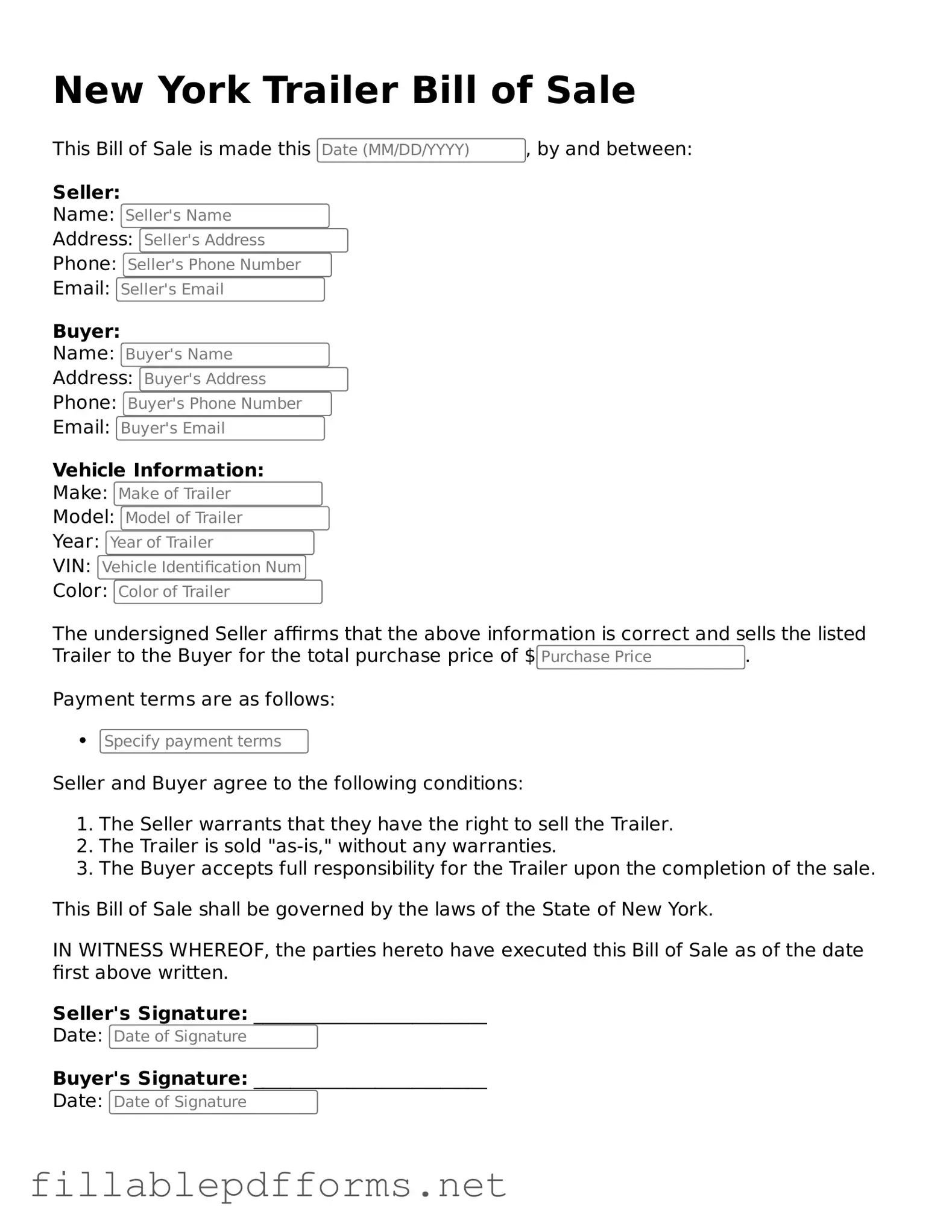Attorney-Verified Trailer Bill of Sale Form for New York State
The New York Trailer Bill of Sale form is a legal document used to transfer ownership of a trailer from one party to another. This form provides essential details about the trailer, including its identification and the terms of the sale. Understanding this document is important for both buyers and sellers to ensure a smooth transaction.
Launch Editor Here

Attorney-Verified Trailer Bill of Sale Form for New York State
Launch Editor Here

Launch Editor Here
or
▼ Trailer Bill of Sale PDF
Almost there — finish the form
Complete Trailer Bill of Sale online fast — no printing, no scanning.